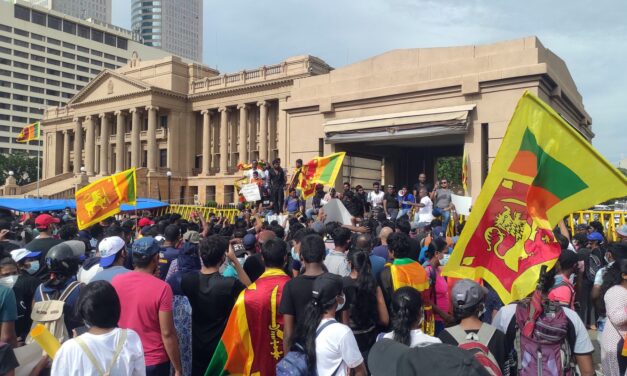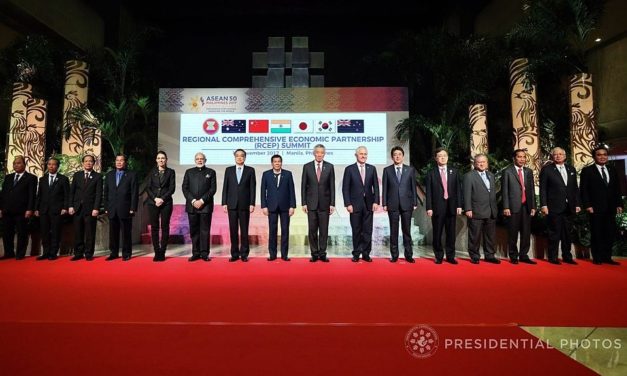Struggles and Alliances Towards Food Sovereignty / Nyéléni Process 2025
Input from Focus on the Global South: Let me start by thanking LVC for inviting Focus on the...
Read MorePosted by Anisa | Dec 12, 2023 | Asia/World, Feature, Food Sovereignty and Agroecology
Input from Focus on the Global South: Let me start by thanking LVC for inviting Focus on the...
Read More
Aragalaya—Anti-government protest in Sri Lanka on April 13, 2022 in front of the Presidential Secretariat. Photo by AntanO for Wikimedia Commons.
Posted by Anisa | Oct 17, 2022 | Asia/World, Food Sovereignty and Agroecology, Opinion/Analysis, Trade and Investment
By Benny Kuruvilla* The Global Food Crisis, this time A dossier by Focus on the Global...
Read MorePosted by admin | Jul 16, 2020 | Food Sovereignty and Agroecology, India, Publications
Published by Focus on the Global South and Alternative Law Forum in collaboration with the Rosa...
Read More
Leaders from member countries at the 2nd RCEP Summit in Manila in 2017. Will countries come to an agreement when they meet again in Thailand on 1 November? [Photo from Presidential Communications Operations Office, Philippines via Wikimedia commons]
Posted by admin2 | Oct 30, 2019 | India, Trade and Investment
India’s difficulty in acceding to the mega regional free trade agreement, RCEP, currently being...
Read MorePosted by admin2 | Jun 24, 2019 | Asia/World, Systemic Alternatives
After the 2008 global financial crisis, big banks were rescued and public spending was curtailed....
Read MorePosted by admin | Dec 18, 2008 | Systemic Alternatives
by SMITU KOTHARI & BENNY KURUVILLA
Interview with Egyptian economist Samir Amin.
SMITU KOTHARI
Samir Amin: “It was the financial corporations that asked the governments to step in and ‘nationalise’ them. The rescue package was drafted by them, and they are in control of most of the bailout money.”
The financial crisis continues to spread rapidly across the world, crippling banks, stock markets and manufacturing industries and leaving hundreds of thousands jobless in its wake. Two days after the much hyped meeting of the Group of 20 in Washington, D.C., economist Samir Amin shared his insights into and analysis of the arduous road ahead for economic globalisation and the urgent need for a course change from capitalism and the possibilities of a new internationalism in the form of a Bandung II initiative.
Read MorePosted by admin | Jun 19, 2006 | 1Post Types
por Benny Kuruvilla* BOMBAI, 12 de junio de 2006: Desde la Conferencia Ministerial de la OMC en Doha en el 2001 se ha producido un cambio radical en la posición de India en relación a los servicios. Habiendo liderado la...
Read MorePosted by admin | Dec 16, 2005 | Trade and Investment
By Benny Kuruvilla
In the Ministerial draft that was taken from Geneva to Hong Kong the sections on services (Paragraph 19-21 in the main text and Annex C) were the most controversial. The brackets on Annex C, which showed that it was not a consensus document, partly reflected this.
Knowing that services could stymie a successful outcome at Hong Kong, it was tactically discussed before the Ministerial began in a meeting of the Core Group on services (a non inclusive group which comprises 15 countries and is co-chaired by the US and India) on the evening of 12 December 2005. It was not on the agenda for the first 2 days of the Ministerial. The idea of the main demandeurs was to front load the ministerial with other issues such as agriculture, NAMA and development and introduce Annex C towards the end thereby ensuring that dissenting voices would be muted.
